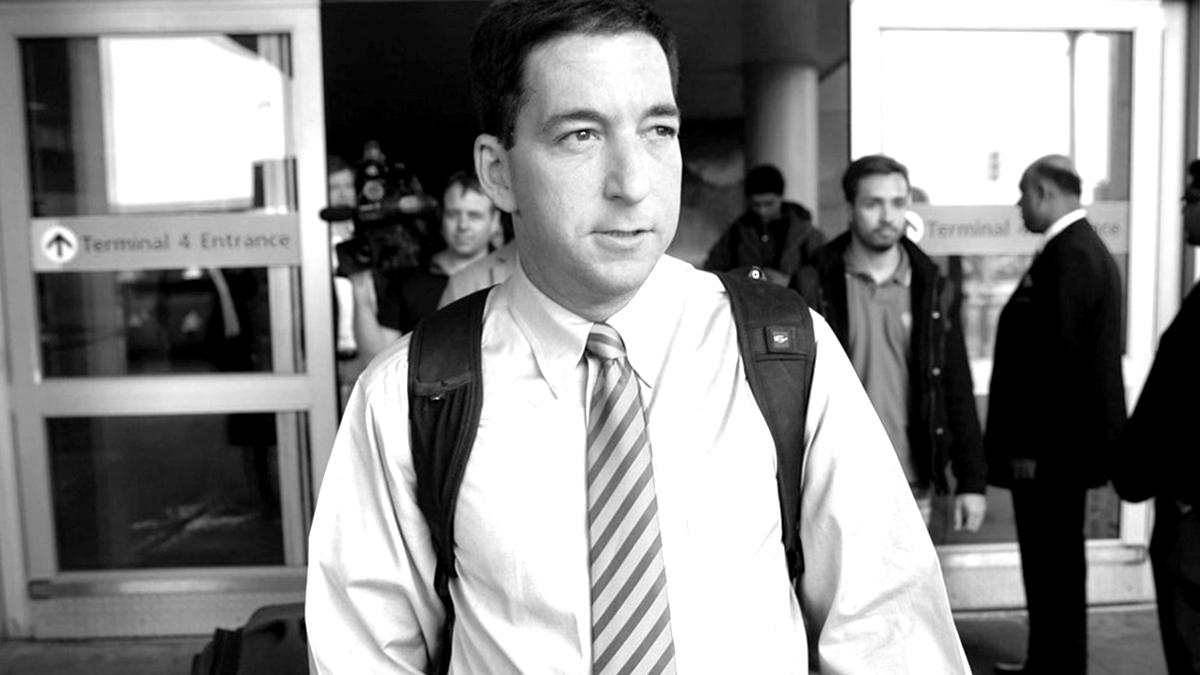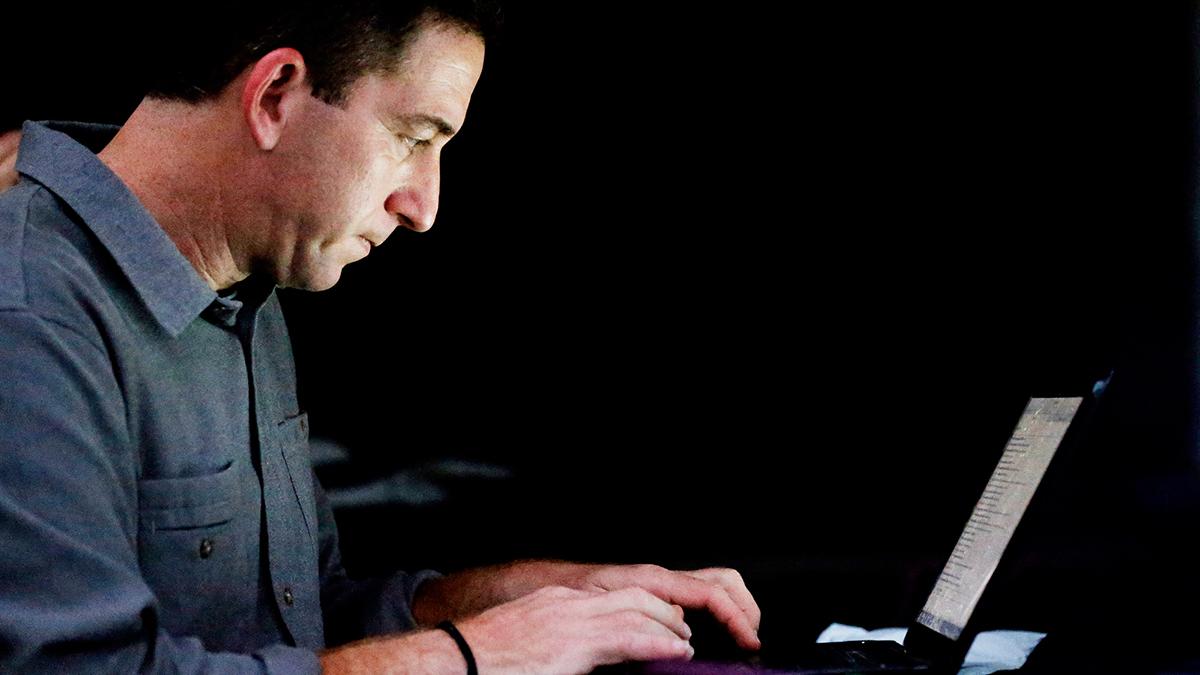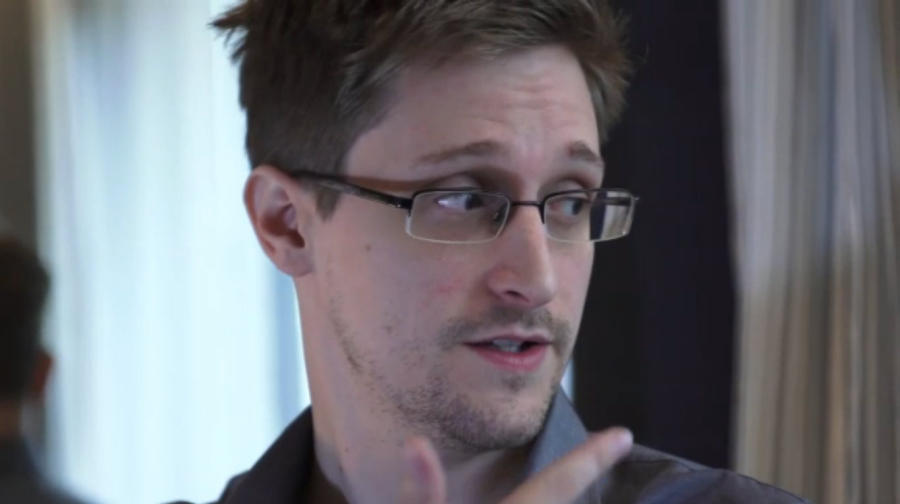
In a recent interview with Occupy.com, journalist Glenn Greenwald said a lot has changed in the two years since he exposed secret NSA surveillance programs through whistleblower Edward Snowden, foremost the sense that "Internet companies like Facebook, Google, Apple, Yahoo and Microsoft are really petrified that if they don't demonstrate a commitment to their users' privacy and eliminate this perception that they've been collaborating with the NSA, it's going to destroy their future business prospects.”
“Continuing to put pressure on these companies by refusing to use any companies that aren't protecting people's privacy is incredibly important, and then demanding that politicians take these issues seriously," Greenwald told Occupy.com in late May, days before Congress allowed the provisions in the Patriot Act to expire.
"I think that politicians respond to the public and there's a reason why there's so many people in Congress now willing to take these issues on in a meaningful way, that aren't being bullied any longer by the terrorist run-around – and it's because they know the public cares about them.”
A little over a month ago, Picador released the paperback version of Greenwald's No Place to Hide: Edward Snowden, the NSA, and the U.S. Surveillance State, in which The Intercept co-founder and former Guardian journalist contextualized his experience exposing the story with Snowden, demonstrating why the power wielded by the NSA is just the tip of the iceberg, and highlighting the dangers of a surveillance-state mentality along with ways the public can fight back against it.

In May 2013, Greenwald flew to Hong Kong with documentary filmmaker Laura Poitras to meet an anonymous source claiming to have documents that proved the U.S. government was spying on its citizens. That source – who days later revealed himself as Edward Snowden, an infrastructure analyst for NSA contractor Booz Allen Hamilton living in Hawaii – provided Greenwald and Poitras with copies of thousands of classified NSA documents obtained with the intent to leak them to the public.
Despite facing bullying and threats from the U.S. government, Greenwald published a series of articles based on Snowden's archive, the first of which ran in the Guardian on June 6, 2013, exposing the NSA's indiscriminate and warrantless access to Verizon telephone records, including calls between U.S. citizens suspected of no crimes.
“Whenever anybody asks me what has changed as result of the Snowden story, the thing I always say, more than anything else, is the changes in individual behavior of the way people use the Internet,” Greenwald told Occupy.com.
“It wasn't just me back then. Almost no reporter who was working on national security issues or sensitive matters was using encryption, or the Tor browser, or any kind of instrument designed to cover things up, because surveillance just wasn't something on the forefront of people's minds.”
Since then, he said, “there's been this huge change in the way not just journalists but millions of people around the world now use encryption who didn't use encryption previously. And that's one of the reasons why I was so candid in talking about my experience [in the book], because I wanted to make sure that people understood that even if you're not technologically proficient, you can use learn to use PGP (Pretty Good Privacy) – and that you should.”

With Snowden's assistance, Greenwald exposed the extensive legal breach of the U.S. government's surveillance systems and the frighteningly broad interpretation of the Patriot Act, used in the post-9/11 era to defend its spying actions. No Place to Hide details Greenwald's dealings with Snowden in Hong Kong and afterward. More importantly, it makes a case against the surveillance state at large, including an analysis of never-before-seen documents from the Snowden archive.
The book begins by detailing a series of e-mails Greenwald received in late 2012 from an anonymous source who went by the moniker “Cincinnatus.” Cincinnatus claimed to have important information to disclose to Greenwald, but demanded an encrypted form of on-line communication, like PGP, to do so. For many months, Greenwald failed to act on obtaining the information promised by Cincinnatus (Snowden) – and didn't ultimately even learn how to use encrypted communication methods until he was in Hong Kong and interviewing the whistleblower.
“That's how close I came to blowing off one of the largest and most consequential national security leaks in U.S. history,” Greenwald admits in the book, highlighting the importance of secrecy in the NSA's surveillance tactics. If people don't understand that they're being watched, continue to operate under the guise of privacy, and take the security of their personal communications for granted, Greenwald writes, the NSA can work relatively uninhibited.
The documents he analyzes in "No Place to Hide" paint an astonishing picture of the amount of data the NSA has the capacity to collect and store on any given day – more data than it could ever hope to analyze, he says. In Greenwald's analysis, the government's drive to scoop up all information from everyone has actually made its chance of uncovering real terrorist plots quite slim compared to a strategy of targeted surveillance of those who are proven to pose a true potential threat.

Greenwald says the Snowden leaks have had a major impact on American society. In early May, the U.S. Court of Appeals issued a landmark ruling that the NSA's bulk collection of telephone metadata is unlawful. Speaking to this, Greenwald said, “It's a pretty extraordinary decision because the history of the judicial branch in post-9/11 America has been one of extreme deference to the government – essentially refusing to say no to whatever the government wants to do, with very few exceptions.
"And so for a court of this magnitude to come and say that a major program justified in the name of counter-terrorism is illegal is obviously monumental, and was made possible exclusively by the disclosures of Edward Snowden,” he continued. “I just think it shows that there is still a huge amount of vibrancy to this debate.”
However, Greenwald added that individual citizens are still the ones responsible for securing their freedom and privacy against an ever-encroaching surveillance state.
"One of the biggest dangers is that people can feel like its hopeless. There was this great Occupy Movement, and even though it did a lot of change and did a lot of good, it still ended up being suppressed in important ways. And it can breed this defeatism that is always the goal of people in power: to make those who might challenge them feel like it's futile.”
“The big Snowden lesson," he continued, "is this is somebody who was completely ordinary in every way. He grew up in a lower-middle-class home, he didn't have any political connections or family wealth, and he didn't even graduate high school. And through nothing more than an act of conscience he really changed the world.
"It doesn't mean that we all have to go to the extremes that he went to or make the sacrifices that he made. But it does, I think, teach the lesson that defeatism is never warranted – that there's always ways individuals can find to tap the power within themselves to confront injustices.”
In Greenwald's view – as articulated in the engaging, intelligent, step-by-step argument he presents in No Place To Hide – the only true hope for defeating the surveillance state is to drag it into the light. A process that he and Snowden courageously began to undertake two years ago, which continues to evolve in the daily global debate around surveillance that they inaugurated.
3 WAYS TO SHOW YOUR SUPPORT
- Log in to post comments
















